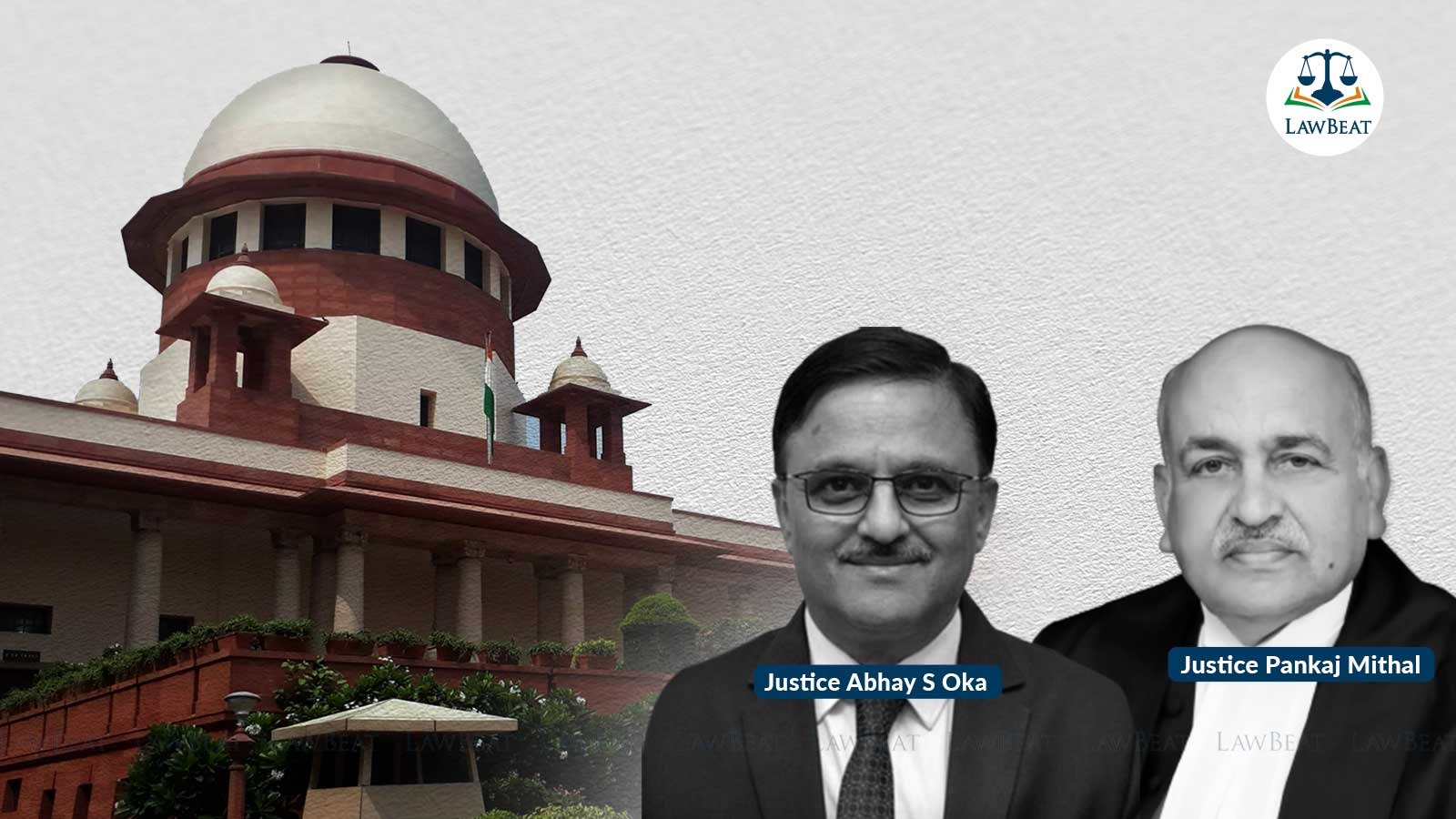'Chaotic situation': SC says HC can't entertain writ petition against civil court's order from other state

Court said if the high courts start entertaining Article 226 petitions for challenging the orders passed by the civil courts in other states, it will lead to a chaotic situation
The Supreme Court has said that a high court cannot entertain a writ petition when a statutory remedy is available to the aggrieved litigant. It also said that a high court can also not take up a challenge to the orders passed by civil courts in other states or "it would lead to a chaotic situation".
A bench of Justices Abhay S Oka and Pankaj Mithal set aside the Bombay High Court's order which stayed the civil court's order in Siwan in Bihar with regard to five properties in Maharashtra.
The bench said that the present appeal disclosed a shocking state of affairs.
In the matter at hand, Indian Overseas Bank Asset Recovery Management Branch proceeded against five properties and orders were passed in its favour under Section 14 of the Securitization and Reconstruction of Financial Assets and Enforcement of Security Interest Act, 2002.
However, Pankaj Kumar Tiwari, the appellant filed a suit in the civil court of Siwan. The appellant relied upon the alleged Memorandum of Understanding of October 4, 2015, executed by him and the borrowers in relation to the five properties. The prayer made by the appellant in the suit was to declare their alleged rights in respect of the said properties. The trial court appointed a receiver and directed them to take physical possession of the properties in Thane and Mumbai.
Before this, the Bank had already taken physical possession in respect of two properties and symbolic possession in the case of three other properties.
"If these facts had been pointed out to the Civil Court at Siwan, we are sure that the order which was passed on January 24, 2023 would not have been passed," the bench said.
"There is one more serious aspect of the case," the bench said, having noted the appellant pressed for appointment of court receiver, though he was aware of pending litigations and disputes in the Debts Recovery Tribunal and in the Courts of the Chief Metropolitan Magistrate, Mumbai, and Thane regarding the schedule properties.
The bench found that in the order of the Trial Court, the fact that the second respondent had mortgaged the said properties had been mentioned. "The Trial Court ought not to have passed a drastic order appointing Court Receiver without impleading the mortgagee as a party defendant," the bench said.
With regard to the role of the Bank, the bench took exception to its decision of taking the extraordinary step of invoking the jurisdiction of the Bombay High Court under Article 226 of the Constitution by specifically challenging the order of appointment of the Receiver passed by the Civil Court in Bihar.
"In our view, the first respondent ought not to have filed such a petition when a statutory remedy was available. Moreover, the High Court ought not to have entertained the Writ Petition. The jurisdiction of the High Court under Article 226 is no doubt very wide. But the propriety and judicial discipline required the High Court not to entertain such a petition," the bench said.
"The High Court ought to have relegated the first respondent to the statutory remedy while possibly granting a limited protection. A statutory remedy was available to the first respondent before the concerned Court in Bihar. If the High Courts start entertaining Article 226 petitions for challenging the orders passed by the Civil Courts in other states, it will lead to a chaotic situation. Therefore, we have no manner of doubt that the impugned order will have to be set aside," the bench added.
The court set aside the high court's order and ordered civil court's order should not be acted upon to enable the bank to adopt to appropriate remedies. It also directed the appellant to make a formal amendment to the suit for impleadment of bank. It also directed the trial court to file a fresh order on application for appointment of court receiver.
Case Title: Pankaj Kumar Tiwari Vs Indian Overseas Bank Asset Recovery Management Branch & Ors
